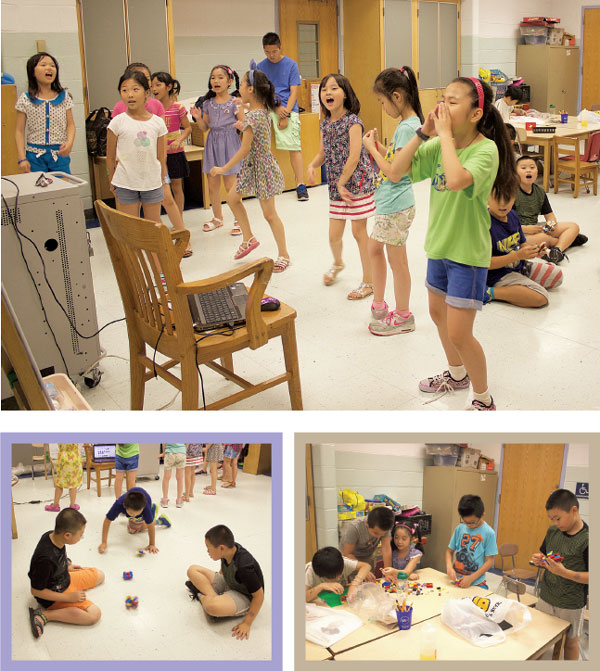US to China and Back Again
Updated: 2016-08-26 12:05
By Hong Xiao(China Daily USA)
|
||||||||
|
Children who were "satellite babies" sing, dance and play with toys at the Chinese-American Planning Council in New York City. |
They are born in the US to Chinese immigrant parents and sent to China to live with
relatives until they are old enough to return to America to attend school. The trauma that both children and parents experience can be life long, Hong Xiao reports from New York.
Lindy Tse can't forget the first night when the couple brought her back to the US from Fujian province at age 4. She cried silently all night because she didn't want to cause them any trouble. She thought they were total strangers. They were her parents.
Tracy Lam still remembers feeling "unknown" when she was brought back to the US from China at the age of 5. She didn't know the two strangers standing in front of her, even though she called them "Mom" and "Dad".
Lindy and Tracy are "satellite babies" - children born in the United States to Chinese immigrant parents who worked long hours and couldn't afford child care. So they were sent back to China when they were infants, raised by relatives, typically grandparents, and returned to the US to enroll in school when they were 5 or 6. Some parents of satellite babies also choose to send their children back to China in part to preserve their culture.
It took one year for Tse to speak to her father. "I think it was because we both lost four years that could be important to our relationship," said Tse, now 16.
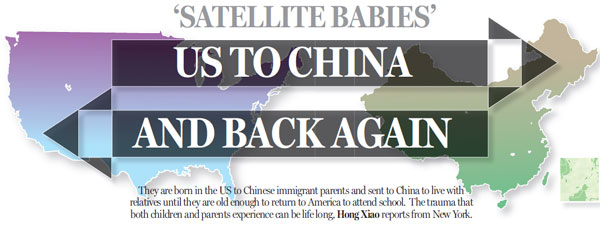
Lam, 17, said, "Sometimes I still feel a distant connection between me and my parents. I just don't know how to show my emotion to them."
David Chen's parents sent him to China's Fujian province to be raised by his grandparents when he was less than a year old. At the age of 5, Chen's parents brought him back the US to enroll in school in New York City.
'Suicidal thoughts'
Chen said the separation from his grandparents, the difficulties of learning English and a bully at school made him have suicidal thoughts in the third grade.
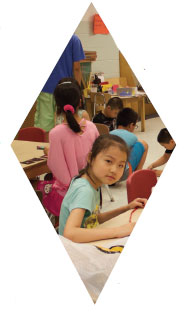
"I definitely had emotions bottled up. I kept everything inside," said Chen, now 24 and a medical student at Touro College in Middletown, New York.
When Chen lived with his parents, they worked 14 hours a day spread out at several restaurants, often seven days a week.
He said he didn't display his feelings or thoughts to them: "I didn't know who they were. They were strangers to me. I was pretty distant with them."
The term "satellite babies" was coined by Dr Yvonne Bohr, a clinical psychologist, and researchers at York University in Ontario, Canada, who have studied such separations since 2006.
"Babies are often sent away just around the time when they have just developed a strong attachment to their biological parents and as a result they may experience distress during [this] separation," Bohr told CBS News. "When they return, the parents in turn may expect the child to be very happy to be home, often not understanding that for that child this isn't home anymore."
In 2016, film director Jenny Schweitzer's nine minute long documentary Satellite Baby focused on the trauma that the children experienced after being shuttled between two worlds.
- Bolivian deputy interior minister killed by miners: report
- In photos: Great Dorset Steam Fair 2016
- Historical towns before and after Italy's earthquake
- Car bomb kills at least eight at police headquarters in Turkey
- Brazil's Senate begins Rousseff's impeachment trial
- Arts festival aims to unite cultures
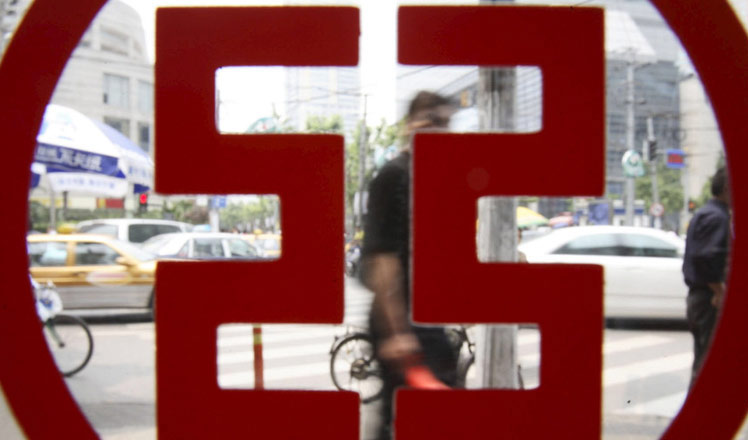
 World's top 10 largest banks by assets
World's top 10 largest banks by assets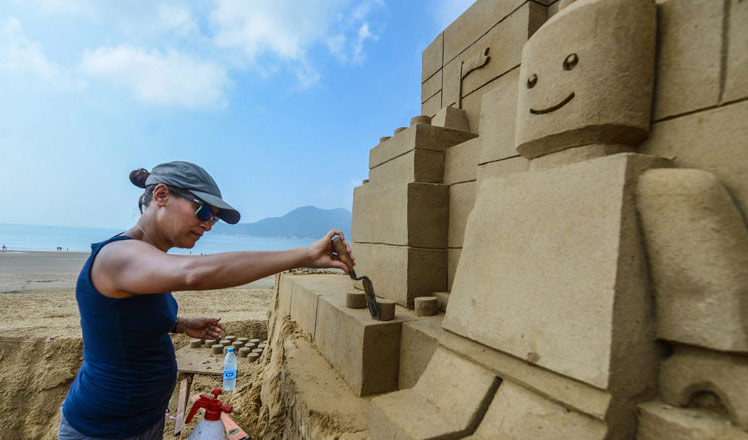
 Sand sculptures to welcome the G20 Summit
Sand sculptures to welcome the G20 Summit
 Historical towns before and after Italy's earthquake
Historical towns before and after Italy's earthquake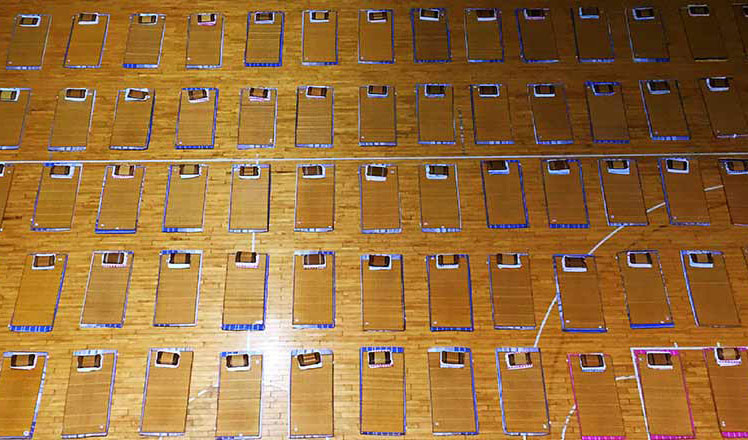
 College prepares 300 sleeping mats for parents
College prepares 300 sleeping mats for parents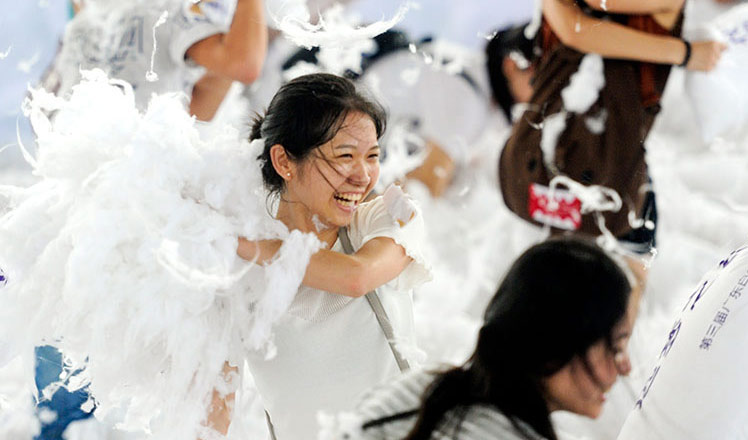
 Ten photos from around China: Aug 19 – 25
Ten photos from around China: Aug 19 – 25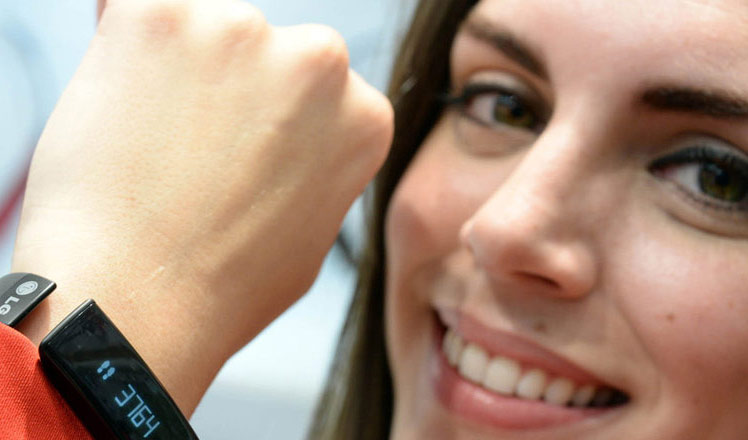
 Top 5 fitness bands in customer satisfaction
Top 5 fitness bands in customer satisfaction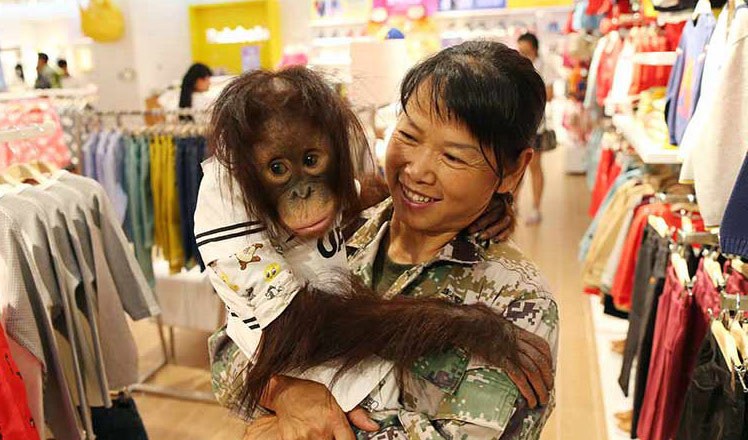
 Orangutan goes shopping in Southwest China
Orangutan goes shopping in Southwest China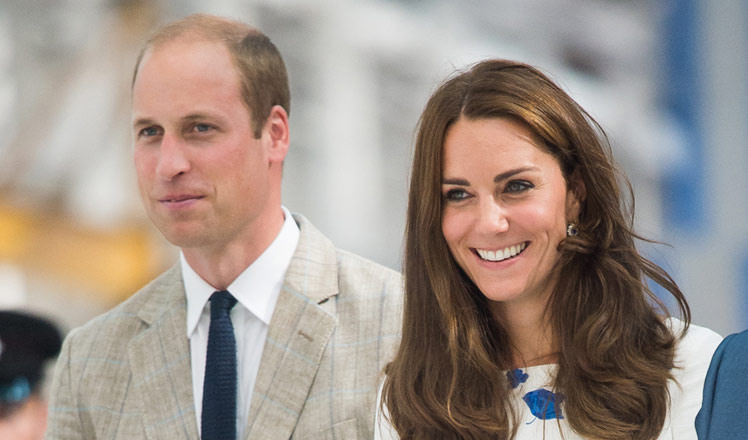
 Prince William and Kate visit charity orgarnization
Prince William and Kate visit charity orgarnization
Most Viewed
Editor's Picks

|

|

|

|

|

|
Today's Top News
Trump outlines anti-terror plan, proposing extreme vetting for immigrants
Phelps puts spotlight on cupping
US launches airstrikes against IS targets in Libya's Sirte
Ministry slams US-Korean THAAD deployment
Two police officers shot at protest in Dallas
Abe's blame game reveals his policies failing to get results
Ending wildlife trafficking must be policy priority in Asia
Effects of supply-side reform take time to be seen
US Weekly

|

|
